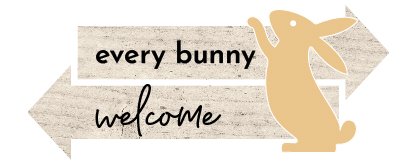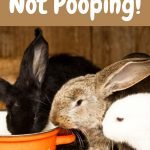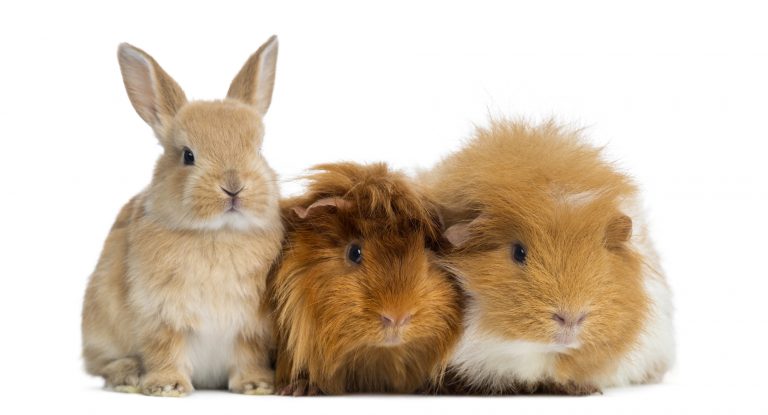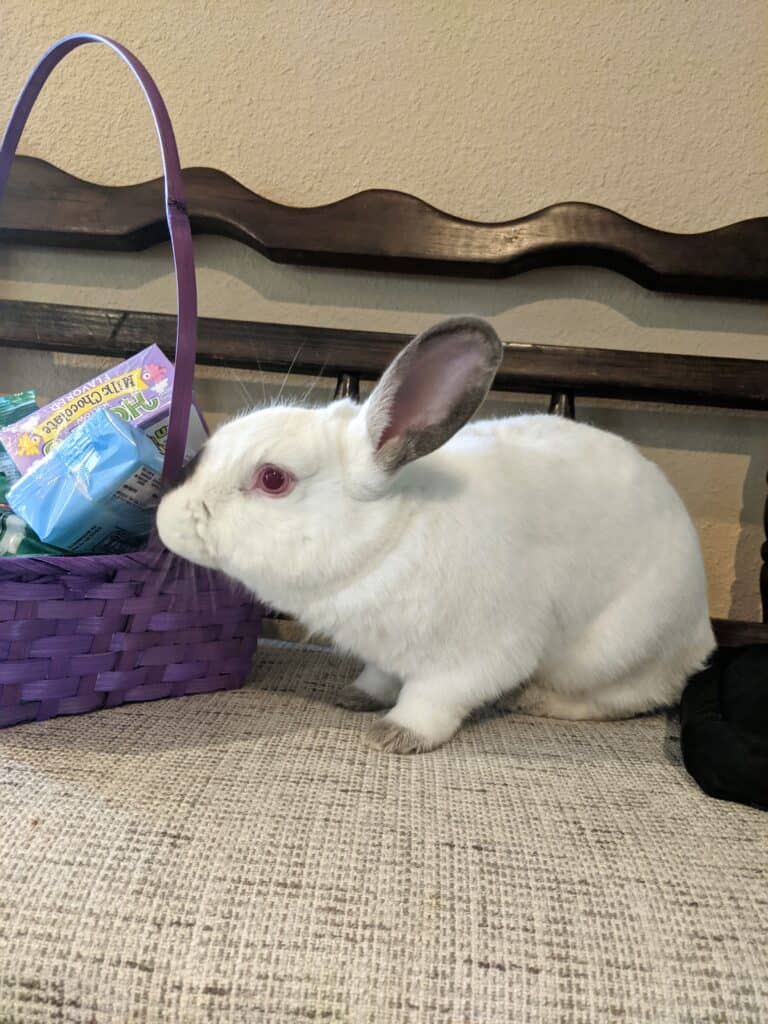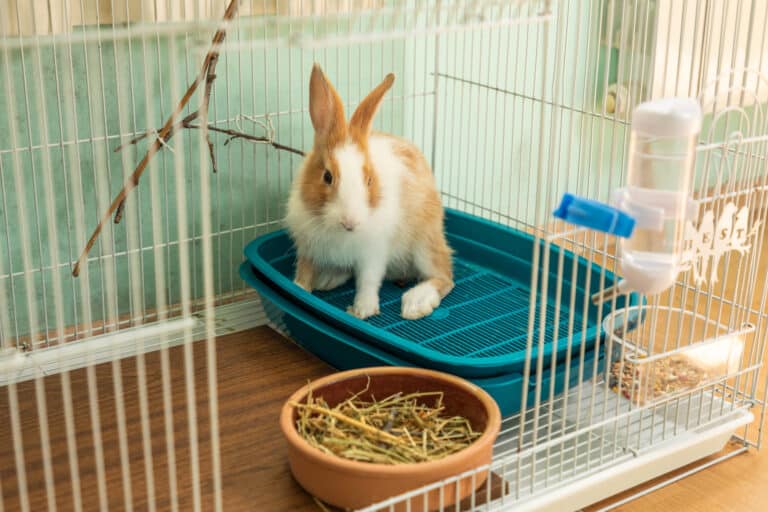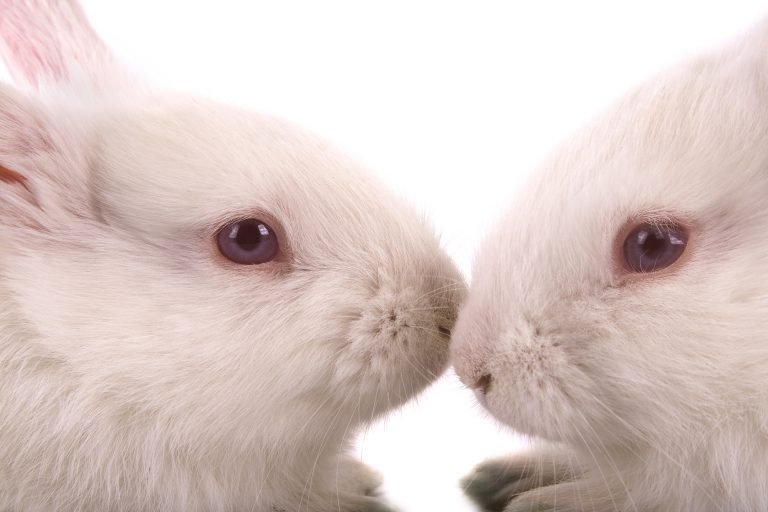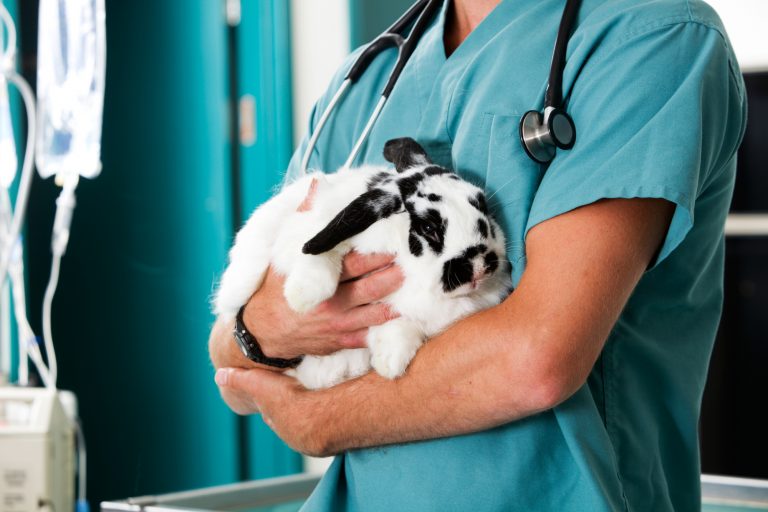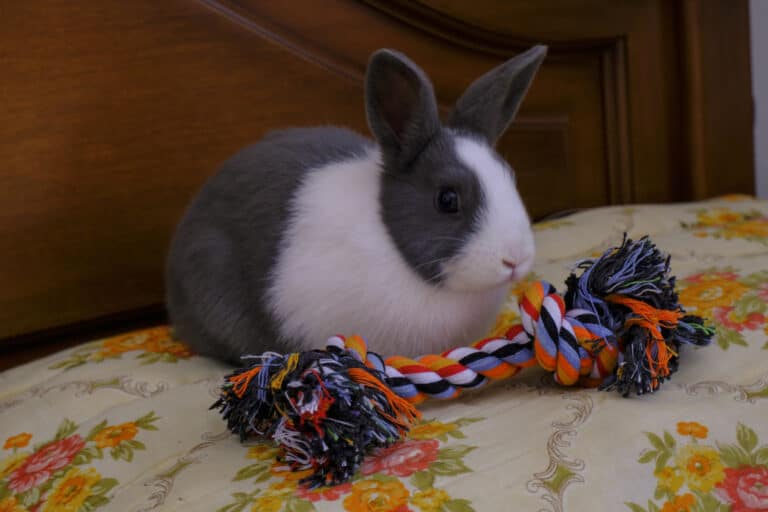What to Do if Your Rabbit’s Not Pooping
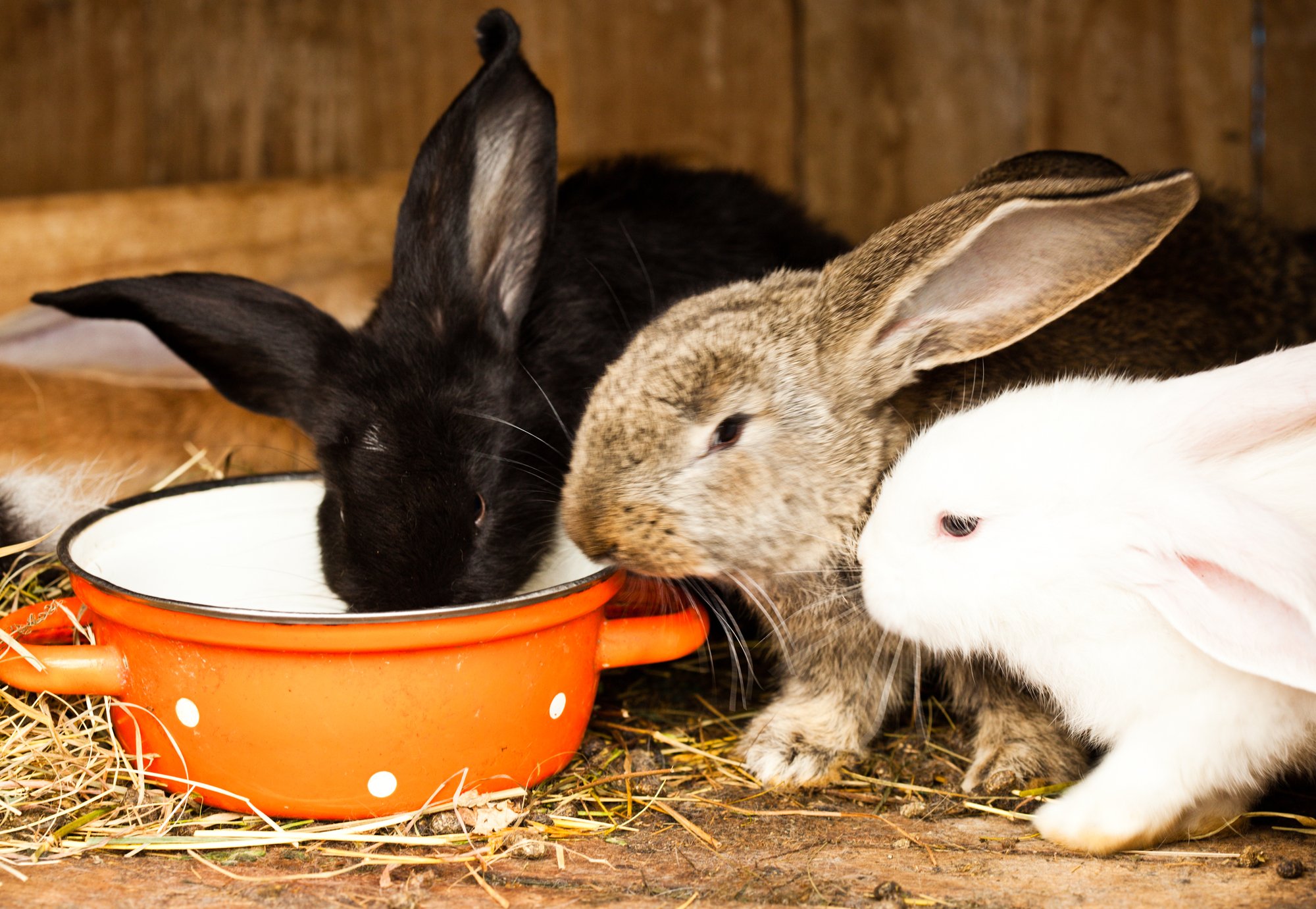
Rabbits are notable for the quantity of their poop. Because they eat mainly hay, which is high in fiber, they produce plenty of waste material daily. We don’t think anyone took the time to measure the exact quantity, but it’s safe to say that buns move their bowels a lot. That’s why fur parents find it alarming when their rabbit is not pooping.
This condition can turn serious pretty quickly, so if it happens to your bunny, it’s best to address the issue immediately. Let’s find out what causes your rabbit to stop pooping and what you can do to help him.
How Much Poop Should Your Rabbit Produce?
Like we mentioned at the start, a rabbit’s diet tends to create a lot of poop. But don’t worry if you don’t see a mountain of droppings. It’s hard to keep track of the actual amount because your pet may do his number two in hidden spots of his cage.
Rabbits also eat some of their poop. It sounds gross, but there’s a logical reason behind the practice. The excreted material called cecotropes is rich in nutrients that buns need. They usually pass and consume this type of poop at night, so you won’t usually see a lot of it in your pet’s litterbox.
That said, you’ll usually notice if your rabbit is not pooping.
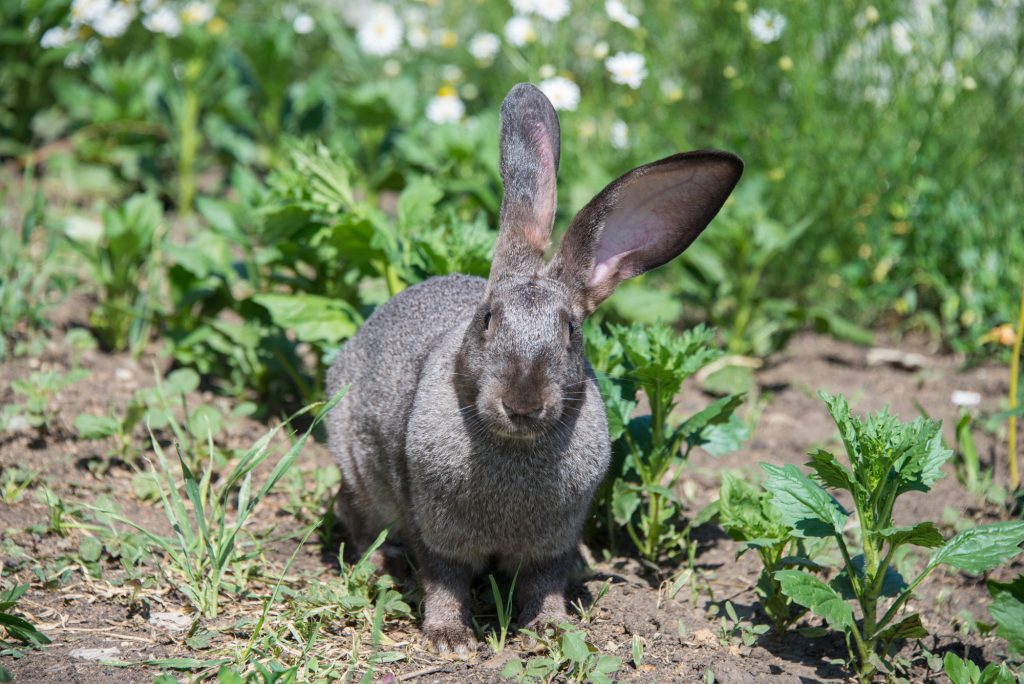
What Causes a Rabbit to Stop Pooping?
Because rabbits usually produce plenty of droppings, a lack of poop may indicate that your bun is experiencing problems with his digestion, making him constipated. This health issue can be dangerous for rabbits. If it doesn’t get resolved, your bun is at risk of developing gastrointestinal stasis (GI). GI stasis is the slow movement of the food material inside a rabbit’s intestinal tract and can be life-threatening.
Here are some of the reasons why rabbits stop pooping.
Diet
Your bun needs plenty of fiber in his diet for his digestive system to function properly. That’s why hay should comprise around 70% of his meal, followed by fresh veggies and a small amount of pellet and treats. The fiber in hay helps push the food through your rabbit’s intestines and prevents blockages from forming.
Dental Problems
Rabbits need to chew constantly. Otherwise, their perpetually-growing teeth get too long and cause some problems. Overgrown teeth are painful, so your pet may stop eating. In addition, they might not be able to break down the food material properly. This can lead to digestion and pooping issues.
Low Levels of Vitamin C
While your bun won’t usually need vitamin C supplements, low levels of this vitamin can also cause pooping problems. Like humans, rabbits need the right mix of vitamins and minerals in their diet for their body systems to function efficiently. So make sure you serve your bun some vitamin C-rich fruits and veggies.
Dehydration
Water is life. That holds true for almost all creatures, including humans and rabbits. If your pet doesn’t get enough water, this can affect food movement through his intestinal tract. In turn, this leads to a lack of poop. Your rabbit should have access to clean, fresh water 24/7 so top up the contents of his water bowl regularly.
Pain
It’s difficult to determine if your bun is sick. Being prey animals, rabbits usually mask signs of illnesses to avoid being easy targets for predators. That’s why it’s essential to learn how to tell if your rabbit is sick or in pain.
Lack of appetite is one of the symptoms of illness and discomfort, so if your bun stops eating, he may be in pain. And without food in his stomach, he won’t have anything to eliminate.
Stress
Rabbits are sensitive creatures. As such, they get easily stressed. If your pet is upset, it can lead to pooping issues. Unfortunately, many things can cause stress to rabbits, so it falls on you, his fur parent, to take care of his emotional health.
Some common sources of stress are boredom, being alone for a long time, excessive handling or handling by strangers.
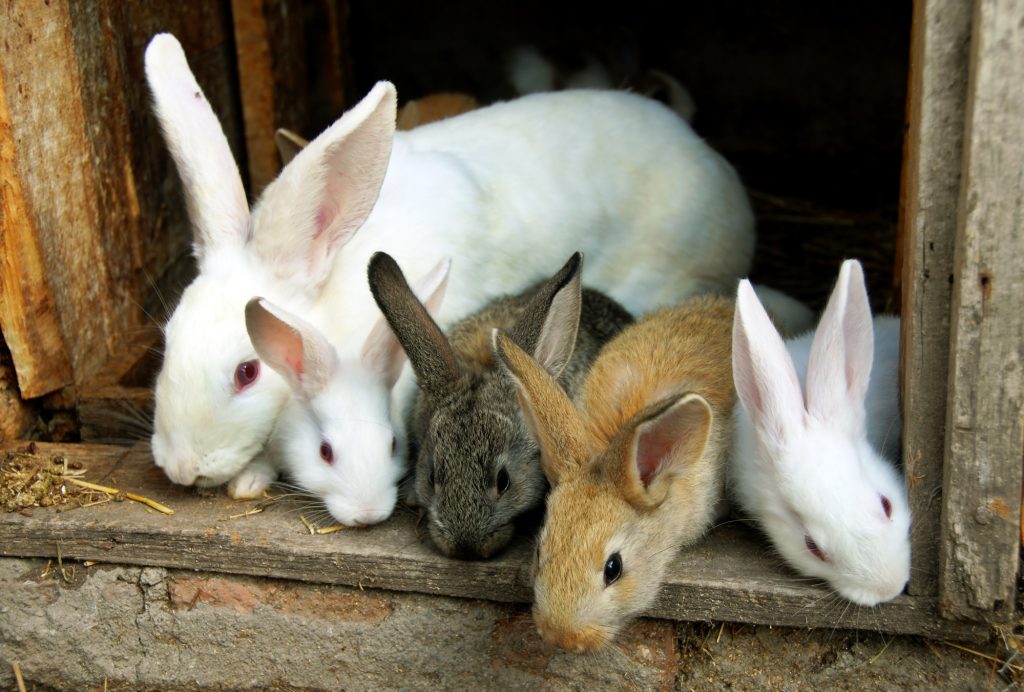
How to Get Your Rabbit to Poop
You want to prevent GI stasis, which poses significant risks to your pet’s health. That’s why you’ll need to get your pet’s digestion back on track. Here are some suggestions that may help.
Fluids can sometimes do the trick
Because dehydration is one of the causes of poop issues, supplying your bun with lots of fluids can help the situation. Fresh water is best but giving him apple or carrot juice may encourage him to increase his liquid intake.
Fiber from Hay May Work
Timothy hay is recommended for rabbits because it contains the right proportion of protein, fat, and fiber that rabbits need. Other alternatives, such as orchard or oat hay, also work well for buns who get tired of Timothy hay. Avoid giving alfalfa or clover hay, which has a high protein and calcium content that can cause indigestion or bloating.
A Massage May Also Help
Gently massaging your bun sometimes stimulates a sluggish gut. To do this, hold your pet on your lap with his head on the crook of your elbow, then stroke his belly lightly. He may struggle a bit at first but will likely stop if he feels relieved by your soothing touch.
Turn to Leafy Herbs
Look for herbs and veggies with lots of fiber and contain magnesium. These types of greens help limit the growth of harmful bacteria in the gut while encouraging the good ones to flourish. Feed your pet a variety every day. However, when you introduce a new leafy green into his diet, give only a small portion at the start so as not to upset his digestion.
Encourage Your Rabbit to Move It
Building a rabbit obstacle course can entice your pet to run around. This can help get his digestive tract moving again. Even if he doesn’t poop immediately after his exercise, he’ll be thirsty and drink lots of water. The extra fluid intake might soften up the hard feces and facilitate pooping.
If none of these tips work, it’s time to take your pet to the vet to ensure that your precious bun gets proper medical attention.
Being a fur parent means you’ll have to be on your toes and watch for signs of illness or discomfort. When your rabbit doesn’t poop, then it’s time to take action to prevent his condition from getting worse.
Other Articles You May Like!
- Is Orchard Hay Good for Rabbits?
- How Big Do Holland Lop Rabbits Get? Complete Guide
- The Best Lettuce for Rabbits: What Type Can They Eat
- Understanding 15 Rabbit Noises and What They Mean
- How Long Do Flemish Rabbits Live: Giant Breed Facts
We hope you enjoyed this post! If you did, will you give it a share or two 🙂 Thank you! ~from Every Bunny Welcome
